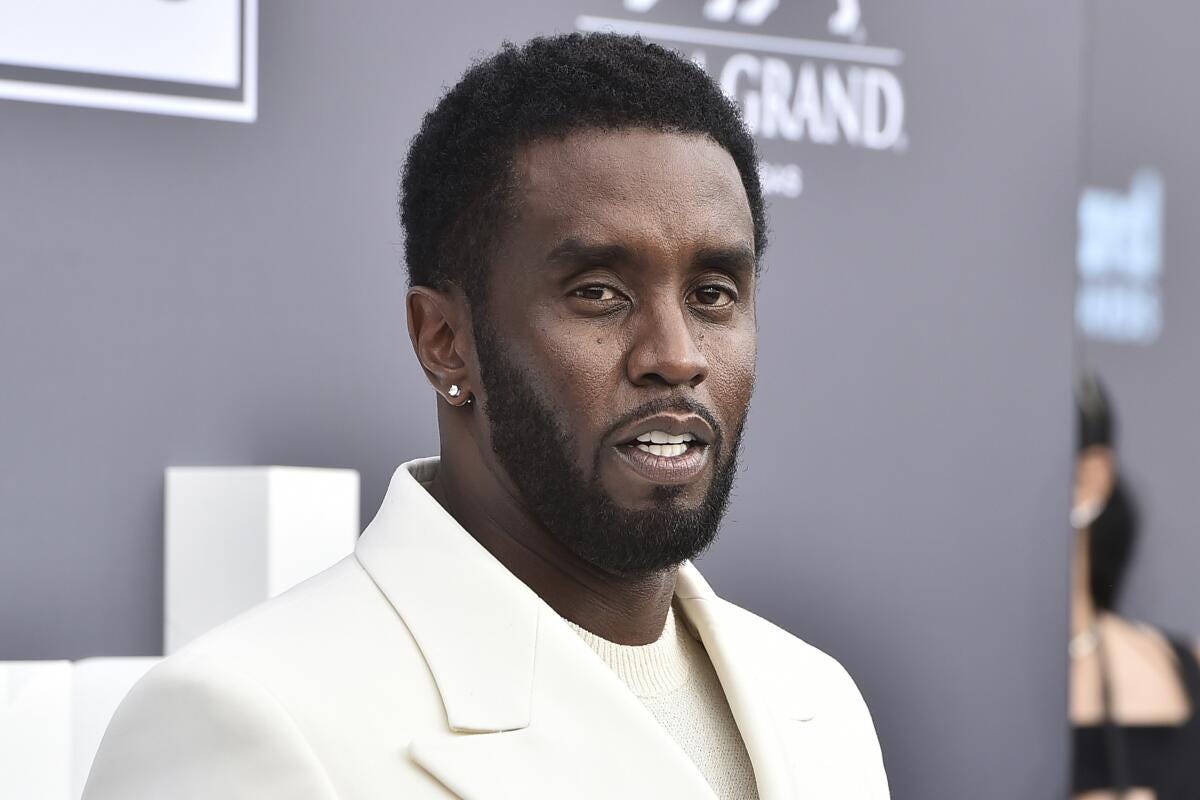The Diddy Pardon Saga: A Legal and Political Quagmire
In an unexpected twist, Sean "Diddy" Combs, the iconic music mogul, has found himself entangled in a legal and political controversy that has captured public attention. After being convicted of soliciting prostitution—a lesser charge compared to the initial accusations of racketeering and sex trafficking—Diddy’s legal team is now reportedly seeking a pardon from President Donald Trump.
This development has sparked widespread debate, not only about the merits of the case against Diddy but also about the broader implications of selective prosecution, political motivations, and even the specter of foreign influence.
Diddy’s Case: A Weak Prosecution and a Curious Conviction
Diddy’s legal woes began when federal authorities indicted him on a trio of serious charges: racketeering, sex trafficking, and soliciting prostitution. The case, however, quickly unraveled, with the prosecution’s evidence appearing shaky and disjointed. Observers have speculated that the indictment may have been less about justice and more about retribution—perhaps Diddy crossed someone powerful, prompting a targeted legal assault. In the end, the jury convicted him solely of soliciting prostitution, a misdemeanor compared to the felonies of racketeering and sex trafficking, effectively handing the feds a significant loss.
The charge of soliciting prostitution, in Diddy’s case, reportedly stemmed from him and his girlfriend arranging escorts for personal encounters—an act that, while illegal, pales in comparison to the violent or organized crime allegations initially leveled against him.
Notably absent from the federal case were charges related to aggravated battery, a crime Diddy has been linked to in the past. Although aggravated battery is typically a state charge with an expired statute of limitations, the Department of Justice (DOJ) has the authority to federalize such offenses under certain circumstances, as the U.S. Constitution does not explicitly recognize statutes of limitations for federal crimes. The feds’ decision to sidestep these harder, more substantive allegations has fueled perceptions of a sloppy, vindictive prosecution.
The Pardon Push: Diddy’s Team Appeals to Trump
In response to the conviction, Diddy’s legal team has turned to an unconventional lifeline: a presidential pardon from Donald Trump. Soliciting prostitution, critics argue, is a bullshit charge—a minor offense that doesn’t warrant the scrutiny Diddy has faced, especially when others engaged in similar conduct have escaped prosecution entirely. This selective targeting raises legitimate questions about fairness and impartiality in the justice system. For Diddy’s camp, a pardon represents not just a chance to clear his record but also a way to expose what they see as an overzealous and politically motivated legal campaign.
Trump, known for his unpredictable use of pardon power, appears to be entertaining the request. This move, however, is far from straightforward. Culturally, pardoning Diddy would be a lightning rod—his celebrity status and the nature of the charge make it a tough sell to the public, even if the conviction seems disproportionate. Yet Trump’s willingness to consider it suggests there may be more at play beneath the surface.
Trump’s Pardon Pattern: The Ghislaine Maxwell Connection
Adding to the intrigue, Trump has also floated the idea of pardoning Ghislaine Maxwell, the convicted sex trafficker whose crimes stand in stark contrast to Diddy’s relatively minor offense. Maxwell’s case involved the facilitation of a criminal network that exploited vulnerable individuals—a far cry from Diddy’s personal indiscretions with escorts. The juxtaposition of these two potential pardons has left many scratching their heads. Why would Trump entertain such seemingly disparate acts of clemency?
Speculation abounds. Some suggest Trump’s motivations could extend beyond domestic politics into the murky realm of international intrigue. Could he be covering for foreign interests or shielding criminals tied to intelligence operations?
Maxwell’s ties to Jeffrey Epstein, a figure with documented connections to powerful global players, lend credence to such theories. Diddy’s case, while less overtly linked to espionage, might still fit into a broader pattern of Trump using his pardon power to send signals—or settle scores—on behalf of unseen allies. Without concrete evidence, these remain hypotheses, but they underscore the opacity surrounding Trump’s decision-making.
Selective Prosecution: A Justice System Under Scrutiny
At the heart of Diddy’s pardon request lies a troubling issue: selective prosecution. While Diddy was hauled into court for soliciting prostitution, others implicated in similar or worse behavior have walked free. This disparity isn’t unique to his case—high-profile figures often seem to face legal consequences only when it’s convenient for those in power.
The feds’ failure to pursue harder charges against Diddy, such as federalized aggravated battery, further erodes confidence in the DOJ’s consistency. If the justice system picks and chooses its targets based on personal grudges or political expediency, rather than evidence and equity, its legitimacy is called into question.
The selective nature of Diddy’s prosecution also invites comparisons to broader systemic issues. For instance, the decision not to federalize past state charges suggests a lack of commitment to holding him accountable for more serious allegations—perhaps because doing so would expose uncomfortable truths or implicate others. This cherry-picking of charges and defendants fuels the narrative that Diddy’s conviction was less about justice and more about someone settling a score.
The Bigger Picture: Political Motivations and Foreign Shadows
Trump’s flirtation with pardoning both Diddy and Maxwell raises deeper questions about his endgame. Is he simply drawn to the optics of aiding controversial figures, or is there a strategic calculus at work? The possibility of foreign influence or intelligence operations lurking in the background cannot be dismissed outright. Maxwell’s case, with its ties to Epstein’s global network, already hints at such connections. Diddy’s situation, while more localized, could still be a piece of a larger puzzle—perhaps a favor to an ally or a distraction from other machinations.
For Diddy, the stakes are personal: a pardon would erase a conviction he and his team view as unjust. For Trump, the implications are political and potentially international. A decision to grant clemency could alienate his base, yet he seems undeterred, suggesting either supreme confidence or an agenda that outweighs public opinion.




